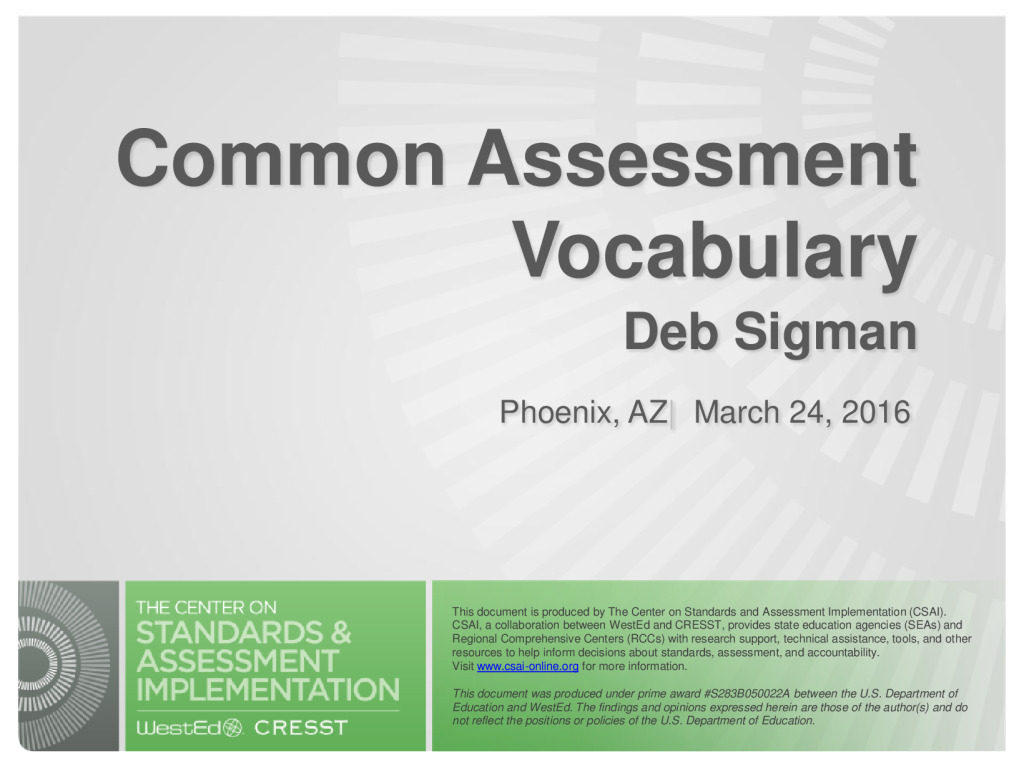Resource Hub
Explore guides, research papers, policy briefs, and tools to aid decisions on standards and assessments.
Assessment and Accountability Presentation
CSAI Co-Director Deb Sigman and Associate Director Joan Herman presented at the West Comprehensive Center on the implications of the Every Student Succeeds Act (ESSA) on state assessment and accountability systems. This information can help leaders address assessment, accountability, and assessment literacy in the context of a comprehensive assessment system. Materials from the presentation include slide decks and a handout:
- Common Assessment Vocabulary
- Creating a “Renewed Vision” for a Comprehensive Assessment System
- Transitioning to the Every Student Succeeds Act (ESSA): Assessments
- Transitioning to the Every Student Succeeds Act (ESSA): Accountability
- Overview of Major Assessment Types in Standards-Based Instruction (handout)

